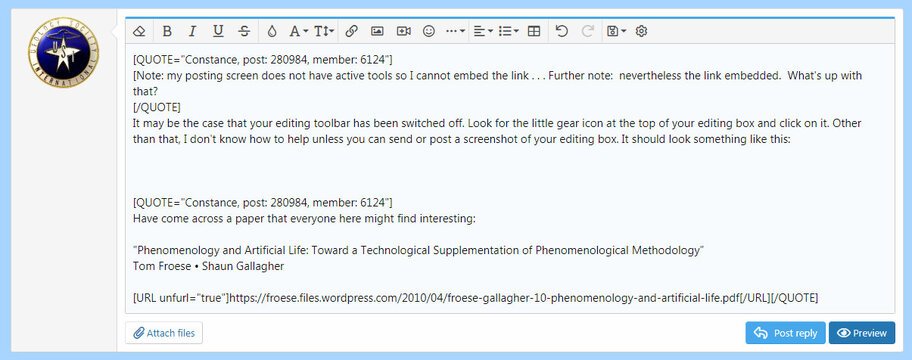Okay, my thought may be included in Constance's list, but golly, you use such big words, with even three or four syllables. . .

So, each of us conscious human beings can detect very similar conscious human beings, and we actually communicate quite amazing things about our own conscious landscapes, believing that those other conscious entities will understand and possibly even respond. The only reason we try to communicate is that we know we will be at least 'fairly well' understood by those other conscious human beings.
At the same time, we all can remember and discriminate between ideas that, for example, I myself express, and those other ideas expressed by other conscious beings. I know what I've thought and expressed, and I know what someone else has thought and expressed, and I can tell that what they express is not something that originated in my own mentation.





